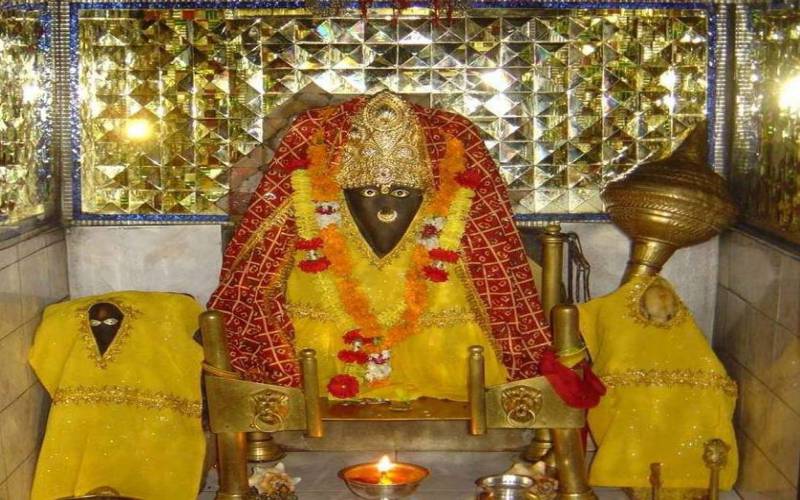Baglamukhi Devi Temple, Himachal Pradesh

Address
Baglamukhi Devi Temple, Bankhandi (NH503), Chandigarh-Dharamshala Road, Kangra district, Himachal Pradesh 177114
Deity
Amman: Baglamukhi Devi
Introduction
- Location: Approximately 30 km from Kangra District, near Dharamshala, Himachal Pradesh.
- Surroundings: Nestled in the Dhauladhar range of the Himalayas.
- Name Meaning: “Baglamukhi” is derived from the Sanskrit words “Bagla” (bride) and “Mukhi” (face).
- Historical Significance: The temple is believed to be around 1000 years old and is one of several dedicated to Goddess Baglamukhi across India.
- Color Theme: The temple is vibrantly painted in yellow, reflecting the Goddess’s affinity for the color. The entrance, domes, and pillars are all adorned in this shade.
- Interior Features: Inside the temple, there is a tiered dome supported by pillars and a large havankund (fire pit) for rituals. The idol of Goddess Baglamukhi is embellished with yellow ornaments, garments, and flowers.
Puranic Significance
- Origin Story:
- Goddess Baglamukhi is a manifestation of Adi Shakti, invoked by gods and celestial beings to defeat the demon Madanasura, who caused chaos and storms on Earth.
- The texts of Svatantra Tantra recount the goddess emerging from a lake in response to the pleas of Lord Vishnu and other gods, taking the form of Baglamukhi.
- As one of the forms of Goddess Parvati, she is worshipped widely across India, with the Kangra temple being a significant site.
- The temple’s history predates the Mahabharata era, with associations to Lord Brahma. According to mythology, Baglamukhi emerged to recover sacred texts stolen by a Rakshasa (demon).
- It is the 8th Shaktipeeth, where the Pandavas are believed to have worshipped during their exile.
Special Features
- Idol Description:
- The idol of Baglamukhi in Kangra features a dark face with shimmering golden eyes, a nose ring, and a crown, representing a unique portrayal of the goddess.
- She is depicted sitting, with her club or mace positioned beside her.
- Temple Aesthetics:
- The walls of the temple are painted bright golden yellow, honoring the traditional color associated with the goddess.
- Havans and Rituals:
- An octagonal platform with a towering pagoda-like spire is present for performing havans, yajnas, or fire sacrifices upon devotees’ requests.
Festivals
- Major Celebrations:
- Festivals celebrated at the temple include:
- Navratri
- Guru Purnima
- Vasant Panchami
- Other special pujas and aartis throughout the year.
- Festivals celebrated at the temple include:
Century/Period/Age
1000 Years old
Managed By
Archaeological Survey of India (ASI)
Nearest Bus Station
Bankhandi
Nearest Railway Station
Kangra station
Nearest Airport
Chandigarh




